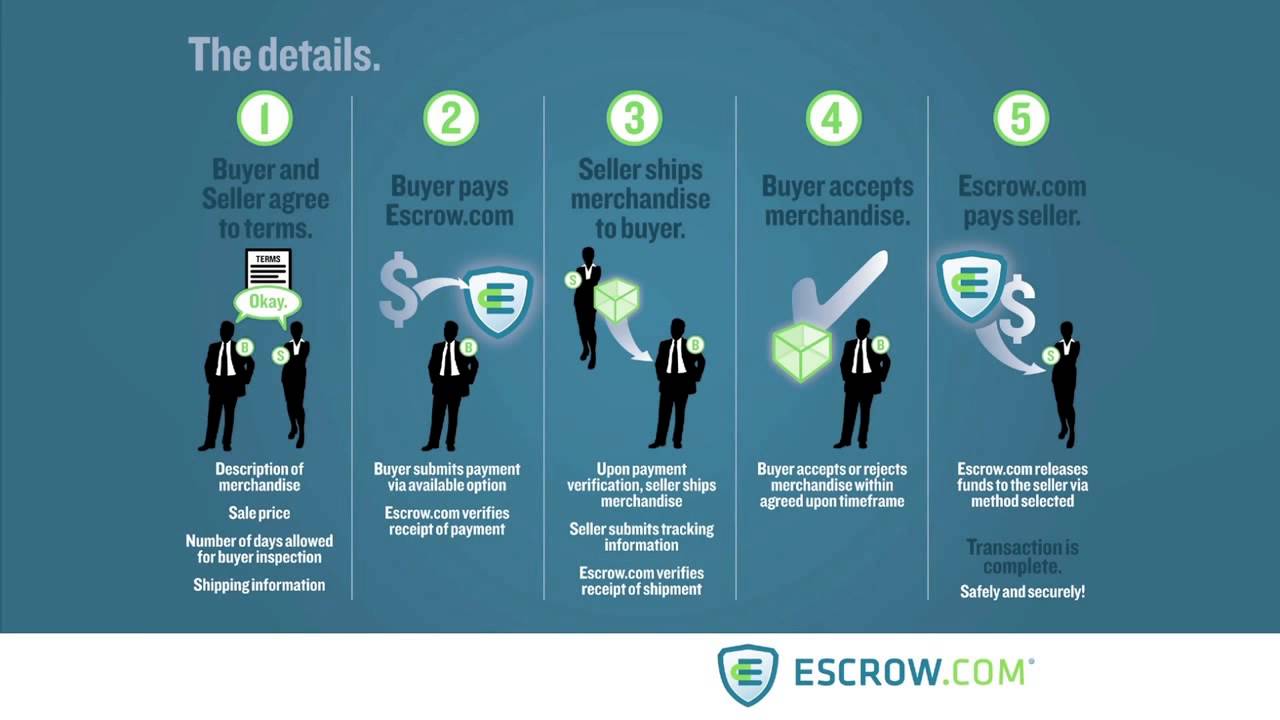An escrow bank account is a secure financial arrangement where a third party holds funds until a specific condition is met, providing protection to both the buyer and seller. In this type of account, the funds are kept separate from the buyer’s and seller’s personal accounts until the agreed-upon terms are fulfilled, ensuring a smooth and trusted transaction process.
It minimizes the risk of fraud or misappropriation of funds and is commonly used in real estate transactions and online purchases to ensure the safe transfer of funds and goods. By placing the funds in an escrow bank account, parties involved can have peace of mind knowing that their transaction is secure and will only be completed once all parties meet their obligations.
Table of Contents
Definition And Purpose Of An Escrow Bank Account
An escrow bank account is a bank account where funds are held in trust by a neutral third party until a specific condition or event is met. This type of account provides security for both the buyer and the seller in a transaction.
The definition of an escrow bank account is that it serves as a temporary depository for funds during a real estate or business transaction. The purpose of an escrow bank account is to hold funds until all the terms of the agreement are fulfilled.
This ensures that the seller receives payment and the buyer receives the property or services agreed upon. An escrow bank account acts as a safeguard, preventing any party from being defrauded or losing money. It provides a mutually beneficial arrangement for all parties involved, ensuring a smooth and secure transaction.

Credit: www.usbank.com
How Does An Escrow Bank Account Work?
An escrow bank account is a financial arrangement where a neutral third party holds funds until certain conditions are met. This ensures a secure transaction between the buyer and seller. The account is set up by the parties involved, including the buyer, seller, and sometimes a broker or attorney.
In this account, the funds are deposited and held until all the terms of the agreement are fulfilled. The steps to set up an escrow bank account involve opening an account with a trusted bank, submitting necessary documentation, agreeing to the terms and conditions, and funding the account.
This arrangement offers protection to both the buyer and seller, ensuring that the money and assets are handled properly. With an escrow bank account, transactions can proceed smoothly, providing peace of mind to all parties involved.
Assurance Of Payment Security
Escrow bank accounts provide assurance of payment security for both buyers and sellers. Buyers are protected as their funds are held securely in escrow until the agreed-upon conditions are met. This ensures that the buyer’s money is not released until they have received the goods or services as promised.
Sellers also benefit from the protection offered by escrow bank accounts. They can be confident that they will receive payment once the buyer has confirmed their satisfaction with the transaction. This eliminates the risk of non-payment or fraudulent chargebacks. With an escrow bank account, both parties can engage in transactions with peace of mind, knowing that their financial interests are protected.
Facilitation Of Transactions
An escrow bank account serves to facilitate large financial transactions by ensuring timely payments. The account acts as a neutral third party, holding funds until all the terms of the transaction are met. By using an escrow bank account, both the buyer and seller can be confident in the secure handling of their funds.
This arrangement eliminates the need for trust between the parties involved, as the account ensures that the payment is made only when the agreed-upon conditions are fulfilled. Whether it’s a real estate purchase, business acquisition, or any other significant monetary exchange, an escrow bank account is a valuable tool that streamlines the transaction process and protects the interests of all parties involved.
Choosing The Right Bank
Choosing the right bank for your escrow bank account requires thorough research on different banks and considering their fees and services. Look for a bank that offers competitive rates and low fees. Compare the services provided, such as online banking, customer support, and ease of transferring funds.
Additionally, read reviews and seek recommendations from trusted sources to ensure the bank has a good reputation. Moreover, consider the bank’s location and accessibility, as well as any additional features that may be beneficial for your specific needs. By doing your due diligence and considering all these factors, you can find the right bank to establish an escrow bank account that meets your requirements and provides a positive banking experience.
Meeting The Bank’S Requirements
Meeting the bank’s requirements for an escrow bank account involves gathering the necessary documents. These include proof of identity and address, financial statements, and legal agreements. The bank will set a minimum deposit and balance to be maintained in the account.
It’s important to have these funds readily available to ensure smooth transactions. By providing the required documentation and meeting the bank’s financial obligations, individuals and businesses can establish an escrow bank account to secure their funds and carry out important financial transactions with confidence.
The bank will guide customers throughout the process, ensuring compliance with all necessary regulations. Establishing an escrow bank account offers peace of mind and facilitates secure financial transactions for both parties involved.
Setting Up The Account
Setting up an escrow bank account is a straightforward process that requires submitting an application. The account opening process usually involves filling out the necessary forms and providing the required documentation. Once you have completed the application, it is important to review it for accuracy before submitting it to the bank.
The bank may also require additional information or clarification, which you should promptly provide to avoid any delays in the account setup. The bank will then review your application and documentation, and if everything is in order, they will open the escrow account for you.
It is crucial to follow all the instructions provided by the bank and ensure that all the necessary details are included in your application to expedite the account opening process.
Frequently Asked Questions For Escrow Bank Account
What Is The Difference Between An Escrow Account And A Regular Bank Account?
An escrow account is used for holding funds during a real estate transaction, while a regular bank account is for general banking purposes.
Who Owns The Money In An Escrow Account?
The money in an escrow account is owned by the parties involved in the transaction.
Can I Open An Escrow Account With My Bank?
Yes, you can open an escrow account at your bank.
Is An Escrow Account Good Or Bad?
An escrow account can be beneficial as it acts as a safe and neutral entity for financial transactions.
Conclusion
An escrow bank account is a vital tool in the world of financial transactions. It provides peace of mind for both parties involved in a transaction by ensuring the safekeeping and proper distribution of funds. With an escrow bank account, buyers can feel confident that their money is secure, while sellers can trust that they will receive payment once all conditions are met.
This type of account also acts as a neutral third party, protecting both parties from fraudulent activity and facilitating a smooth transaction process. Whether you are buying or selling real estate, engaging in online transactions, or participating in mergers and acquisitions, an escrow bank account is an essential tool to consider.
By following the guidelines of a secure escrow process, you can minimize risks and streamline your financial transactions. So, don’t hesitate to explore the benefits of an escrow bank account for your next transaction.
